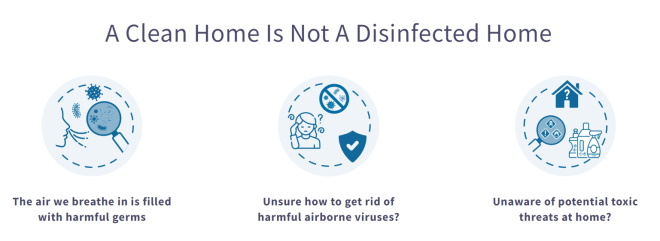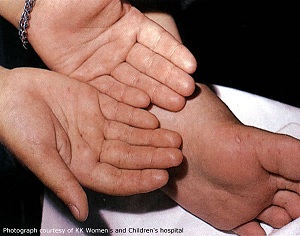
Health x Wellness
Can air disinfection prevent the spread of HFMD?
Hand-Foot-Mouth Disease (HFMD) in Singapore continues to be a constant worry for parents. BioCair has observed a surge in interest about their solution that tackles airborne viruses and surface germs.
In July this year, the average daily cases of HFMD has increased to 14-16 cases a day as compared with 4-10 cases for the first three months of 2022.
HFMD is an endemic disease with no vaccine or treatment. Parents are taking matters into their own hands and seeking preventive solutions to guard their children against HFMD.

BioCair, a company specialising in non-toxic aerial disinfection products, has seen a 90 percent increase in interest search for HFMD products such as devices and purifying solutions as people focus on safeguarding the environment they and their families live in. The sales for their HFMD products were the highest in May to June.
We discuss the HFMD trend in Singapore and means of using disinfection products to tackle the problem with Richard Boggs, CEO of BioCair.
the Active Age (AA): What is the trend for HFMD currently and what can we expect over the coming 6 – 9 months?
Richard Boggs (RB): Based on the weekly statistics from MOH, HFMD cases have been on an upwards trend. The number is expected to rise as more young children are gathering and interacting with each other in the school settings. Masks are now optional in the preschool environment, with the masks off, children are at a higher risk of infecting one another.
AA: Why do you think HFMD has been on the rise?
RB: Most young children stayed indoors due to the pandemic over the past two years. This increases the number of children that have never contracted HFMD. Children do not go outdoors and they wear masks to protect themselves from COVID-19. Therefore, they do not come in contact with viruses such as HFMD and do not have immunity against them.
Now that we have more relaxation measures and masks are optional in indoors and school settings, more children will gather together and increase the risk of cross-infection if one child is infected.
AA: According to BioCair, the demand for disinfection products has spiked in recent months. What do you think is the reason for this?
RB: Consumers are more conscious about disinfection to get rid of bacteria and germs in the air that could cause sickness. When their children are sick, the parents are driven by a need to protect them and to create a safe and healthy environment for the children.
Disinfection has been a major focus over the past 2-years and most of us increased the frequency of disinfection. While our lives have and are returning to normal, we continue to disinfect more frequently.
AA: How does air disinfection prevent the spread of infectious diseases within the household?
RB: When the infected person talks, coughs or sneezes, they will exhale aerosol droplets that may carry harmful bacteria and germs. These aerosols can linger in the air for hours. While inhaled by another healthy person who stays in close proximity, these airborne bacteria and germs can easily travel to one’s respiratory tract and cause infections.
Air disinfection is a process of eliminating bacteria and germs from the air. With a lower level of germs present in the air, the chances of airborne transmission at home is much reduced.
AA: How are parents dealing with the rise of infectious diseases among children?
RB: Many parents have increased the frequency of the traditional best practices for disinfection – including hand sanitisation and disinfection of high touch objects and areas. We have also seen an increase in parents seeking new solutions – including non-toxic products and disinfection for the air.
Besides doing the necessary hygiene check, parents are now more conscious about bacteria and germs in the air, they are willing to take the extra step in eliminating airborne germs that cause illnesses to protect their children.
AA: In your opinion, what else can parents do besides protecting children within the immediate environment?
RB: Parents should also do their due diligence to ensure the disinfectants they are using are non-toxic and safe to use around children.
A disinfected area and environment are important. It reduces the bacteria a child will come in contact with. Of course proper rest, good eating habits and hygiene checks should always be observed.
Picture credit to BioCair






